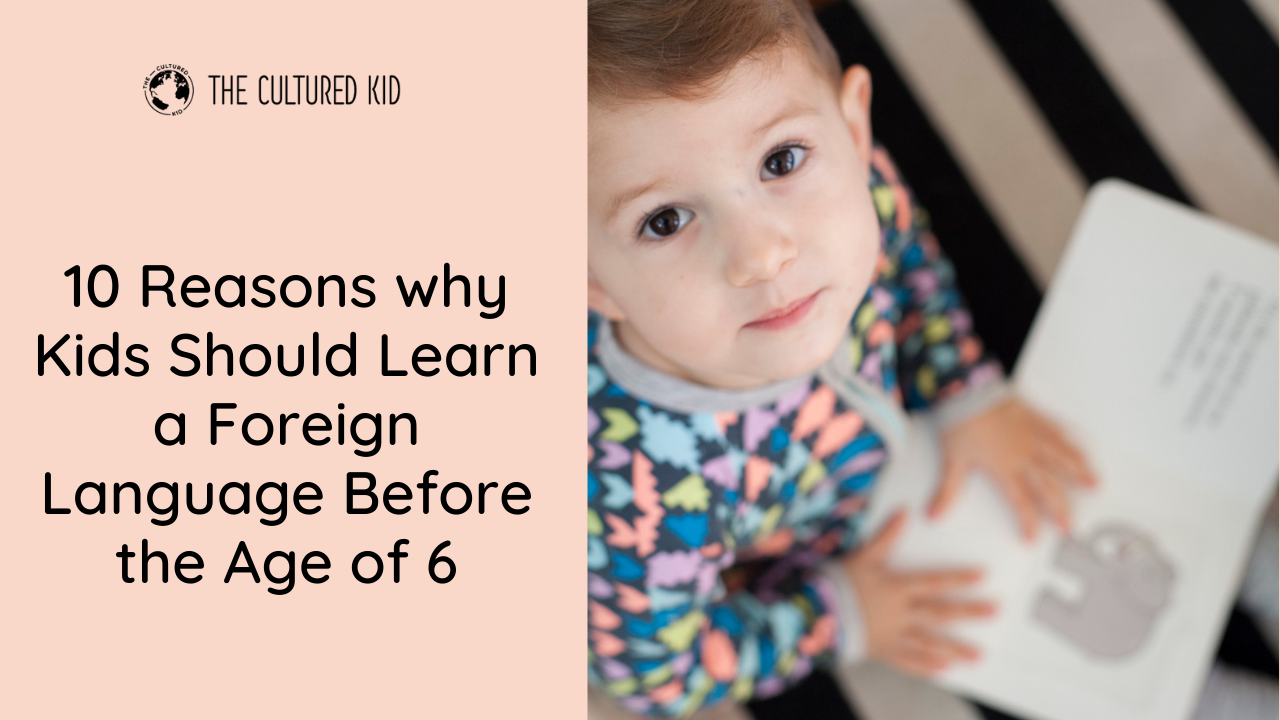10 Reasons why Kids Should Learn a Foreign Language Before the Age of 6

10 Reasons Why Kids Should Learn a Language Before Age 6
As parents, we're constantly faced with choices that shape our kids' futures. What school to send them to. What to feed them. How to balance play with learning. And for many of us, a big question is:
Should I teach my child a second language?
The answer? A resounding yes.
Especially if your child is under the age of six. Why? Because this window—birth to age 6—is when your child’s brain is most receptive to language learning. In fact, research shows the earlier you start, the easier it is for them to absorb and retain language long term.
So whether you’re hoping to reconnect with your heritage, give your child a future edge, or simply want to spark their curiosity—here are ten powerful reasons why early language learning is one of the best gifts you can give.
1. Boosts Brain Development
Studies from Harvard and MIT show that children who learn a second language early in life demonstrate stronger problem-solving skills, better memory retention, and improved attention spans. Bilingual brains form denser neural connections, setting the stage for lifelong cognitive benefits.
2. Enhances Multitasking Abilities
Bilingual kids switch between languages daily, which strengthens their ability to shift focus between tasks. A study from Penn State found that this skill translates into greater mental flexibility—an asset in our fast-moving, digital world.
3. Promotes Cultural Awareness and Empathy
Language is a gateway to culture. When kids learn another language, they also begin to understand different ways of life, perspectives, and traditions. This helps them grow into empathetic, open-minded individuals.
4. Supports Better Academic Performance
Multiple studies show that bilingual children often outperform monolingual peers in areas like math, reading, and standardized tests. Language learning trains the brain to analyze, decode, and connect—skills that show up across every subject.
5. Fosters Confidence
Nothing builds confidence like being understood—and understanding others. When children begin to speak a new language, their sense of achievement skyrockets, positively impacting how they show up socially and academically.
6. Encourages Native-Like Pronunciation
Young children are naturally better at mimicking accent, tone, and pronunciation—often sounding like native speakers. The earlier you introduce a language, the more natural it becomes.
7. Opens Doors for Future Opportunities
In an increasingly global job market, being bilingual or multilingual is a powerful advantage. According to the New American Economy, demand for bilingual workers in the U.S. more than doubled between 2010 and 2015—and it’s only growing.
8. It’s Genuinely Fun!
For kids, language learning looks like singing, dancing, games, stories, and silly phrases. It’s play—not pressure. And when learning feels like fun, they’re more likely to stick with it.
9. Sparks Creativity
Learning a second language isn’t just memorizing words. It encourages kids to see the world differently, use their imaginations, and think outside the box. Creative thinking skills that support success in life and learning.
10. It’s Easier Now Than Later
Young children are language sponges. The earlier they start, the easier it is. In fact, the critical period for language acquisition is before age 8—after that, it becomes significantly harder to achieve fluency and native-like pronunciation.
Ready to Raise a Bilingual Child?
✨ Psst… When xyou’re ready, here are a few fun, stress-free ways I can help you start teaching your kids a foreign language at home:
Grab my FREE Languages Made Easy for Kids Roadmap..
Think teaching a language is hard? Ha. That’s what I used to think, too. Turns out, it’s way easier than you’d expect. This roadmap walks you through exactly how to make it simple (and dare I say, fun?)—even if you don’t speak the language yourself.
Try a FREE Fast Track Mini Language Lesson Bundle..
Want an instant win? These bite-sized, play-based lessons are designed to actually work—no stress, no complicated prep, just press play and watch your kiddo light up. Perfect if you want to dip a toe into language learning without the overwhelm.
Trial The Cultured Home Academy™️.
Need a full, done-for-you plan? This 12-month step-by-step program gives you everything you need to make teaching a new language effortless. No more scouring Pinterest for ideas (and ending up with 37 tabs open). Just grab what you need, hit play, and voilà—one simple, joyful step at a time.
GRAB OUR FREE 'KIDS LANGUAGES MADE EASY' GUIDE
FOR NON-NATIVE PARENTS!
Discover how you can run consistent language lessons, that are fun and engaging and help your kids make the progress they deserve!
Even if you're not fluent!
We hate SPAM. We will never sell your information, for any reason.








